Hr data management and practice
Data management
Reasons of collecting HR data
HR data is important in the organisation where the multinational corporations try to gather data and information in the Human Resource or HR department of the firm in order to manage the organisational activities. The major reasons of collecting the HR data are such as,
To satisfy legal requirements:

Satisfy legal requirements are playing a crucial role to engage the staff and enhance the organisational performance (Manad, Bentounsi and Darmon, 2018). The HR data is mandatory to be stored and analysed tin order to review the attendance of the staff over a specific period of time, payment structure etc. This is effective to manage the employees and retain them for long run. It further enhances the productivity of the employees and it is mandatory for the management team to retain the staff and involve them in the organisational decision making behaviour. For more insights, students often seek HRM dissertation help.
Keeping contact detail of the employees:
Keeping contact detail of the employees in the organisational workplace is important for the HR management team in the company so that it is possible for the leader and managers to identify the personal details, address, bank details for payments and other personal details (Mohammed and Quddus, 2019). The leaders try to review the details of the employees through the HR data and it further helps to analyse employee’s incentives program, job promotion and retention of the staff in the workplace.
Types of data
There are different types of data which are beneficial for the HR department to manage their employees and retain them for long run. The major two types of data are such as,
Descriptive and paper based data:
The descriptive and paper based data and information is important to manage the employee’s activities and working performance (Manad, Bentounsi and Darmon, 2018). For example, performance overview, sickness and absence data, review of each employee about their productivity, demographic information and other personal information are major types of descriptive form of data which are essential for the organisation to manage their staff and ensure good human resource management.
Computerised or numeric data
It is beneficial to manage the employee’s base. For example, the computerised data about attendance, people long term sick, absent of the staff, timing of entry in the organisational workplace, numbers of employees in each departments are beneficial for the company to manage the staff and maintain strong employee base (Mohammed and Quddus, 2019).
Methods of storing the data
Storing the data is important to maintain the database and formation efficiently and the major types of storing the data are,Database programs:
The database management systems such as Microsoft access, Oracle and SQL as well as Microsoft excel are also utilised for storing the HR data and analysing it efficiently (Mohammed and Quddus, 2019). These computerised database programs are crucial for the organisation to handle the large numbers of data and information and analyse it for managing organisational performance. Through this, the data can be store in a systematic order.
Take a deeper dive into Application for HR Administrator Position at Royal Museums Greenwich with our additional resources.
Statistical programs:
The statistical programs such as SPSS and SAS are effective for storing and analysing the numeric data and formation (Rosa et al., 2019). The statistical program is fruitful as there is statistical programs and computerised software through which the data can be handled and analysed efficiently. The large numbers of data and information can be stored quickly and the researcher also can analyse the data and information by pperforming statistical models and applications in computer (Mohammed and Quddus, 2019). Additionally, the paper based storage is also beneficial for managing the database of the employees in long run.
UK legislations
Data Protection Act 1998 is important to store the data and secure personal information about the employees in the HR department of the company. Protecting the information is important to avoid the issue of data breaches and secure the organisational data further (Calvard and Jeske, 2018). Freedom of information act 2000 is also necessary to be implemented in the workplace to provide access of information to the managerial personnel in the organisation (Mohammed and Quddus, 2019). It further gives the authority to the organisational leaders, board members and managers to access the important information and organisational data to make strategic decision and achieve the organisational aim (Rosa et al., 2019).
HR data and interpretations
 The above mentioned table is effective to store the HR data in a systematic process and for example this table is effective to store the causes of sickness among the staff which further helps to identify the percentage of total days lost for the reason of absent such as Psychiatrics, cough and cold, others unknown and Gastrointestinal. All the employees of the organisation are included and the data are recorded over three years.
The above mentioned table is effective to store the HR data in a systematic process and for example this table is effective to store the causes of sickness among the staff which further helps to identify the percentage of total days lost for the reason of absent such as Psychiatrics, cough and cold, others unknown and Gastrointestinal. All the employees of the organisation are included and the data are recorded over three years.
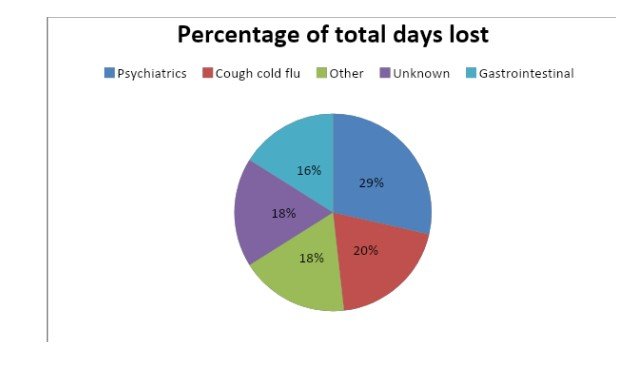

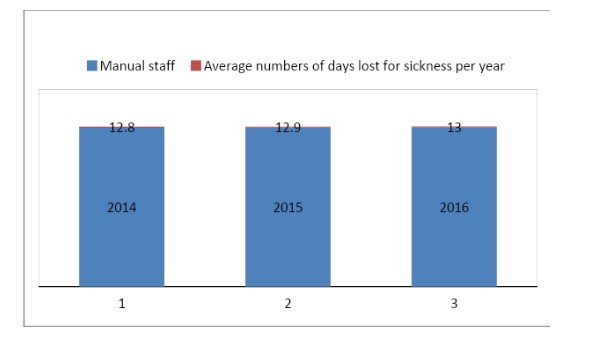
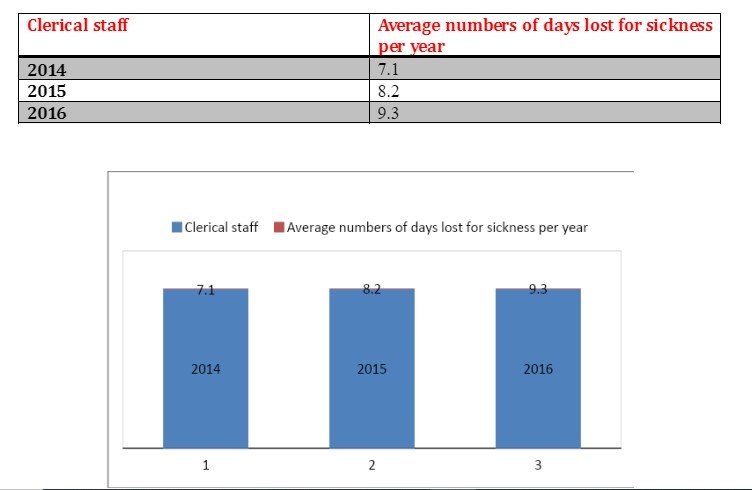

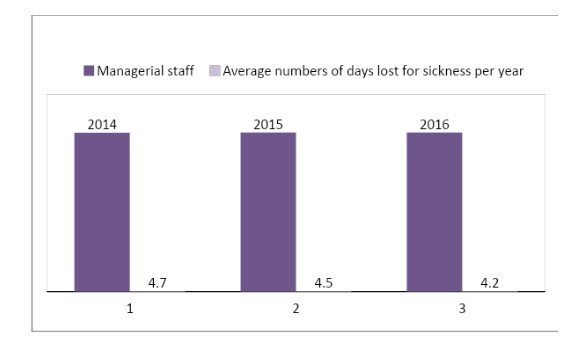
Average numbers of days lost for sickness per year for Academic staff

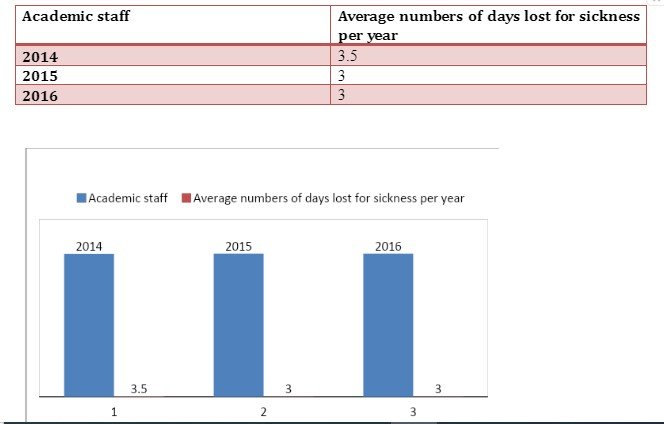
The above mentioned tabular form and bar chart are effective to identify the trend of absent among the staff members over three years. The bar chart is effective to analyse the trend of absents among all the staff in the company.
Take a deeper dive into How A Knowledge and Appreciation of Organizational with our additional resources.
Reference List
Calvard, T.S. and Jeske, D., 2018. Developing human resource data risk management in the age of big data. International Journal of Information Management, 43, pp.159-164.
Manad, O., Bentounsi, M. and Darmon, P., 2018. Enhancing talent search by integrating and querying big HR data. In 2018 IEEE International Conference on Big Data (Big Data) (pp. 4095-4100). IEEE.
Mohammed, D. and Quddus, A., 2019. HR Analytics: A Modern Tool in HR for Predictive Decision Making. Journal of Management, 6(3).
Rosa, A.T.R., Pustokhina, I.V., Lydia, E.L., Shankar, K. and Huda, M., 2019. Concept of electronic document management system (EDMS) as an efficient tool for storing document. Journal of Critical Reviews, 6(5), pp.85-90.
- 24/7 Customer Support
- 100% Customer Satisfaction
- No Privacy Violation
- Quick Services
- Subject Experts



